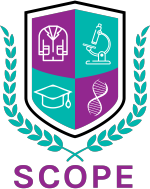Do you know the problem with the current paramedic sector? It’s the skill gap. We have a lot of paramedical professionals, but their healthcare training skills? Underwhelming! This raises a serious issue. We don’t want paramedics who only understand the profession’s theoretical aspects but can also put the theory into practice. This starts right from when paramedical professionals are paramedic students. Since the knowledge available is limited, in this blog, we’ll cover the main skills for paramedical students to work on to excel in a paramedic career.
Before we dive deep into the skills, a disclaimer to this blog would be: the skills covered are the not-so-visible ones, exempting the curriculum-specific skills:
- Clinical Accuracy & Lab Procedures
- Diagnostic Equipment Handling
- Infection Control & Sterilization
- Emergency Basics
- Medical Terminology & Report Interpretation
Essential Soft Skills
- Communication Skills: A paramedic’s job is communicative. Whether it’s a patient, their family, or a superior professional, paramedics must display their communication skills from time to time. On the face of it, the skill looks very obvious. However, handling odd situations professionally is an underappreciated and unfounded skill that builds trust and ensures safety.
- Team Collaboration: The primary purpose of a paramedic professional is to assist doctors. This requires working and collaborating closely with doctors, nurses, and other technicians. The skill lies in maintaining mutual respect and effective teamwork, collectively improving the patient’s quality of life.
- Emotional Intelligence: Did you know why the healthcare sector homes many females? Because it’s a people’s career, females tend to exhibit a higher emotional quotient (EQ). That’s how important emotional intelligence is for healthcare professionals. EQ holds a similar priority for paramedical professionals in understanding patient emotions, showing empathy, and staying calm in tense moments.
- Ethical Conduct: The healthcare career follows a code of ethics. This isn’t written somewhere as a hard-and-fast rule, but professionals are generally expected to follow such practices. These include respecting patient privacy, data confidentiality, and professional ethics.
- Time Management: You don’t overlook a small number of patients daily. As a paramedical professional, you need to manage back-to-back lab reports, handle emergency cases, and assist doctors in complex procedures, all while maintaining the quality and intricacy of work. This is no longer an over-and-above but a survival skill in today’s hospital dynamics.
Tech & Digital Skills
Healthcare procedures have been modernized. DMLT skills required by the hospitals and clinics hiring paramedic professionals are:
- EHR & Digital Recordkeeping: Traditional ways of maintaining registers to record patient data have been gone. Hospitals have adopted electronic health record (EHR) systems, and paramedics are required to have enough knowledge to enter and manage patient data in these systems.
- Operating Diagnostic Software: Most diagnostic machines you see in hospitals are software-backed. This means hospitals would love to delegate these operations to paramedic professionals as well. In this case, learning to navigate these platforms adds significant value to your resume.
- Digital Imaging & Telehealth Tools: As radiology and lab reports rapidly shift to digital channels, paramedical professionals specialized in lab operations are expected to understand working with laboratory information management system (LIMS), cloud storage, and virtual diagnostic tools.
- Data Interpretation: The whole point of healthcare firms requiring paramedic experts to understand the use of technology is that understanding lab data, vitals, and imaging outputs helps in faster and more accurate decision-making.
How to Start Building These Skills
- Internships at hospitals and diagnostic labs.
- Workshops & Simulations to practice lab techniques and emergency protocols.
- Diploma & Certification Courses like the ones from SCOPE.
- Peer Learning with study groups or clubs.
- Role Plays with mock patient interactions, for instance.
Conclusion
The paramedical field in 2025 is not how it used to be before. The field has transformed, and so is the paramedic course skills 2025 dynamic. No matter your paramedic specialization, every role requires you to develop the right mix of technical, soft, and digital skills. If you really want to stand out in job interviews, increase your leverage by creating the required tech skills, and you’ll be off to a good start!

